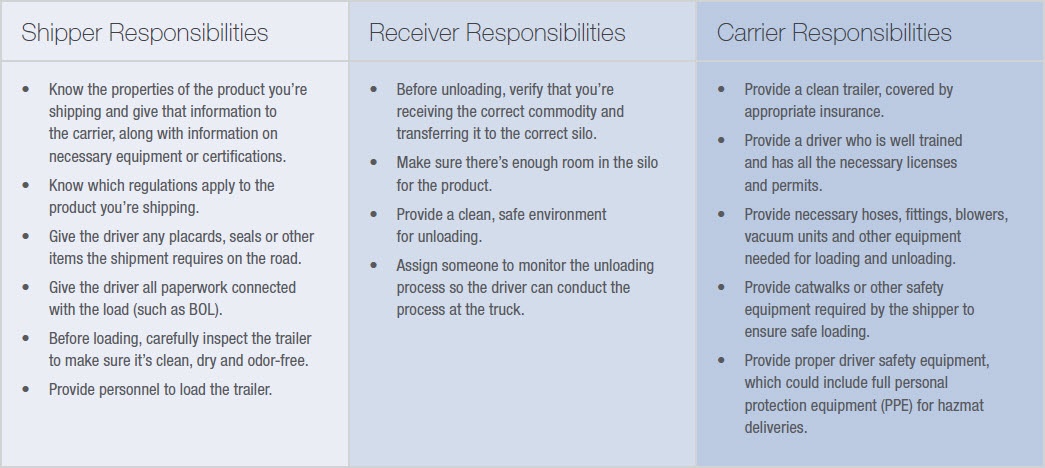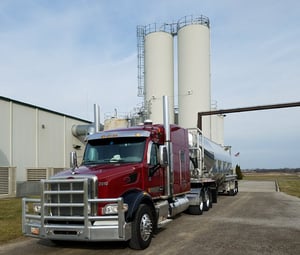Hauling dry bulk freight is a specialty that requires knowledge and careful execution – particularly during the loading and unloading stage. Make a mistake and you could be looking at major financial losses if loads become tainted. But what exactly is the dry bulk carrier responsible for other than moving loads from point A to point B? Where do its responsibilities end and the responsibilities of you and your receivers begin? To avoid finger pointing, it’s important that each party in the chain understands their area of responsibility. This chart provides a summary of dry bulk shipping responsibilities:

Typically, the shipper is responsible for loading a dry bulk shipment, and the driver is responsible for unloading. But that might not be true for every shipment.
Download the new Dry Bulk Freight 101 eBook from Bulk Connection
When you book a load, establish right from the start who will load and unload, so there are no misunderstandings when the truck arrives.
 Questions to ask when choosing a dry bulk carrier
Questions to ask when choosing a dry bulk carrier
An unqualified carrier always exposes you to risk, and that risk is significantly greater when you’re shipping in a tanker truck. To separate the qualified experts from the unqualified ones, a short conversation should occur in which you ask the following questions:
- Experience: How many years of safe, compliant shipments does the carrier have?
- Equipment: Does the carrier have the equipment you require, including segregated trailers if necessary?
- Coverage: Does the carrier regularly serve the parts of the country where you need to pick up and deliver your product?
- Authority: Is the carrier licensed to operate in the states where you need service?
- References: Can you speak to some of the carrier’s customers? If so, don’t hesitate to get on the phone with these people to discuss the carrier’s service quality.
- Insurance: Does the carrier have the right level of liability and cargo insurance for your load?
You can also do some scouting on your own. For example, you can search commercial and government sources to learn about the carrier’s safety record.
Lean on Bulk Connection’s dry bulk carrier network
When it comes to bulk carriers, Bulk Connection has asked the tough questions and done its homework on hundreds of carriers across the country. The ones that make the grade are a part of our bulk carrier network – one of the largest bulk transport networks in North America. To have a trusted bulk expert with over 30 years in the industry match your loads with these qualified carriers, contact us today.




